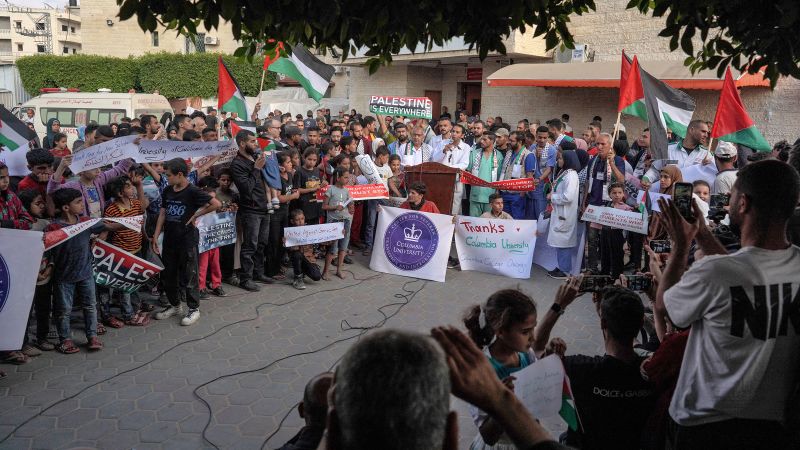The final two home games of the Minnesota Timberwolves regular season should bring nothing but celebratory vibes.
The Wolves still have an outside chance to be the No. 1-seeded team in the Western Conference, will host Game 1 of their first-round playoff series for the first time in 20 years and are getting All-Star Karl-Anthony Towns back on the floor sooner than initially anticipated.
The players are completely locked in on the task at hand and the goal of advancing past the first round in the playoffs for just the second time in their 35-year history.
The rest of their organization has been dealing with turmoil while a once-planned transfer of ownership from Glen Taylor to Marc Lore and Alex Rodriguez has gone up in flames, leading to a startlingly public fight between the two sides that has fans and team employees caught in the middle.
It is all expected to be in public view on Friday night when Lore and Rodriguez are expected to attend the game against the Atlanta Hawks, team sources told The Athletic. It will be the first time they have been back in the arena since the dispute began on March 28.
Heated allegations have gone back and forth and on the record. This week, comments from NBA commissioner Adam Silver and a pair of sourced reports kept the issue front and center as the Timberwolves (55-25) chase the top seed in the West.
Silver said the league will be staying out of the fight, viewing it as a dispute between a buyer and a seller that, per the purchase agreement, will go to mediation and arbitration to be resolved. But he did add some clarity to the situation when asked about Lore and Rodriguez saying that the only reason they did not close at the end of March was because they were awaiting league approval.
“The dispute is precisely that, as to whether they had acted within the window of the option that Glen Taylor had sold them,” Silver said at the board of governors meeting in New York this week. “That’s the very basis of the dispute. So that dispute will be resolved independent of the league office.”
Taylor claims that Lore and Rodriguez did not have the money on time and missed several benchmarks in the agreement before the March 27 deadline, thereby rendering their option to purchase the final 40 percent expired. The contract does call for a 90-day extension “if all NBA Approvals or other required approvals of any Governmental Entity have not yet been obtained,” but Taylor’s view is that does not apply because the option has expired.
“If they would have had the money on the 27th, the deal would have been all done and they would have had control,” Taylor told The Athletic on March 28, the day he announced that the sale was off. “But they didn’t.”
Documents reviewed by The Athletic show that Lore and Rodriguez did send signed financial commitment letters to the NBA on March 20. The documents cover the more than $600 million needed to purchase the final 40 percent of the Timberwolves and Lynx that would have graduated them from limited partners to controlling owners. As part of a three-step purchase agreement on a $1.5 billion valuation, Lore and Rodriguez had already purchased chunks in 2021 and ’23 that took them to 36 percent ownership.
However, proof of funds does not constitute full payment, and the circumstances surrounding the most recent capital raise could play a role in the arguments going forward.
At least a portion of their funds for the final piece did come fairly late in this process when Lore and Rodriguez had to pivot quickly after the Carlyle Group could not comply with NBA guidelines to participate in the purchase.
Lore and Rodriguez had been working for months with Carlyle as a major part of their plans, but Carlyle had to withdraw from consideration because of some potential conflicts of interest in the investment world. With Carlyle out, they moved to secure Dyal Capital, which had already been approved by the NBA, to help bridge the gap.
As Silver said, this is the heart of the dispute. Rodriguez and Lore said last week that because they submitted the financials a week before the closing date, they were eligible for the 90-day extension to go through the league approval process.
Taylor said the contract called for them to close the entire deal by March 27, not just provide proof of funds. When that date came and went, no money had been transferred and no league approval had been conducted, so he believed he was allowed to move forward as the general partner.
“The league never even got around to their approval because they didn’t get their stuff in time,” Taylor said back in March.
“We were ready to close on March 27,” Rodriguez told The Athletic on March 29. “The NBA was not ready.”
Even as things turned ugly, Silver resisted stepping into the middle of it.
“In their purchase agreement they, in essence, pre-agreed to a dispute resolution mechanism that includes mediation and arbitration, and that’s where it stands,” Silver said. “There is no role for the league in that process.”
Two other related elements were reported this week, starting with an ESPN report on Wednesday that Lore and Rodriguez submitted financial projections that called for the Timberwolves to stay below the luxury tax line next season. That would mean they would have had to break up the team’s core to avoid the steep financial penalties. The report stated that the cost-cutting projections “were among the concerns that led Taylor to void” the deal.
As a technical point: Taylor’s feelings about Lore and Rodriguez’s spending habits do not give him legal grounds to end the contract, nor did he claim that to be the case. He said last month that this all came down to a contract that they failed to fulfill. He did not express concerns about their ability to pay the tax publicly at that time.
The Athletic confirmed that those projections were submitted by Lore and Rodriguez. They are not binding. Lore did say in March that he was flush with cash and would not hesitate to spend it to exceed the luxury tax and keep a successful team’s core together.
“I’ve got hundreds of millions of dollars of liquid capital sitting in the bank ready to invest should it be necessary,” he said then.
On Thursday, The Athletic‘s Shams Charania reported that Tim Connelly, the president of basketball operations who has played a huge role in the Wolves’ rise to contention this season, has an opt out in his contract this summer.
Lore and Rodriguez recruited Connelly away from Denver two years ago, offering him a lucrative, five-year contract. Taylor gave Lore and Rodriguez his blessing to go out and find an executive they wanted so the transition of ownership would be seamless, and he gave final approval on the significant compensation.
Given the strings Connelly has pulled to help the Wolves get to where they are, the prospects of him becoming a free agent this summer loom large in the franchise’s future. Whoever is making the decisions this summer will have to make sure that Connelly remains in Minnesota.
That means Connelly could continue on his current deal for the remaining three years, opt out and become a free agent or opt out and negotiate a new deal to stay in Minnesota.
Two top seeds in West have Minnesota President Tim Connelly’s fingerprints: He helped build Nuggets into champions and has revived the Timberwolves.
Amid ownership turmoil in Minnesota, sources say Connelly has an opt-out in his contract after the season. On @RunItBackFDTV: pic.twitter.com/SjXFVPyq2u
— Shams Charania (@ShamsCharania) April 11, 2024
The public nature of this battle is dampening the mood in the organization in a season that everyone has been waiting two decades to enjoy.
The Timberwolves on the court look nothing like the mistake-prone teams that have littered their history since a singular run to the 2004 Western Conference finals. They have a potential face of the league in Anthony Edwards, a rejuvenated NBA Defensive Player of the Year candidate in Rudy Gobert, perhaps the most stable and accomplished pair of leaders that they have ever had in Connelly and coach Chris Finch and have sold out every home game this season.
The Timberwolves off the court look way too familiar right now. Dysfunctional, messy and drama-filled, a “Game of Thrones” episode that threatens to distract from one of the best teams they have ever had. It started with Taylor’s public comments questioning Lore and Rodriguez’s level of involvement in the franchise, escalated when Lore and Rodriguez returned fire and continued this week with various reporting on the tentacles of the situation.
This fight will not be won in the court of public opinion. It will be won in the quiet meeting rooms of mediation and/or arbitration. Until that happens, the constant back and forth is a bad look for the organization at such an important time in its history.
While Silver tries to stay out of the fray, he does say that this saga has taught the league what not to do.
“I think let’s wait to see how this one works out. But it’s certainly not ideal to have a stepped transaction like this,” Silver said. “It’s within our rules, from that standpoint, and it’s what Glen Taylor wanted and it’s what they were willing to agree to at the time. But I think once the dust clears on this deal, it may cause us to reassess what sort of transactions we should allow.”
The team has the potential to play into June if everything breaks right. The fight for ownership could go on a lot longer.
(Photo of Alex Rodriguez and Anthony Edwards: David Berding / Getty Images)

Christine Lake is a sports fanatic who lives and breathes athletics. With an extensive background in sports journalism, he covers everything from major league championships to grassroots sports events. When she’s not on the field or at the stadium, you’ll find Christine coaching youth sports teams.








